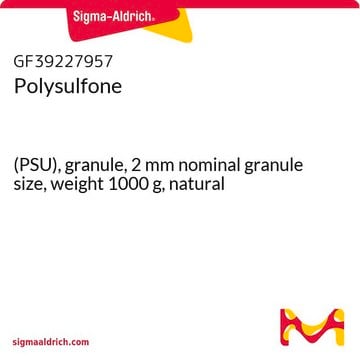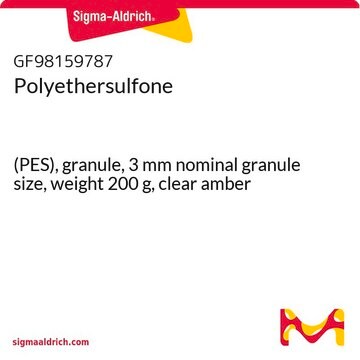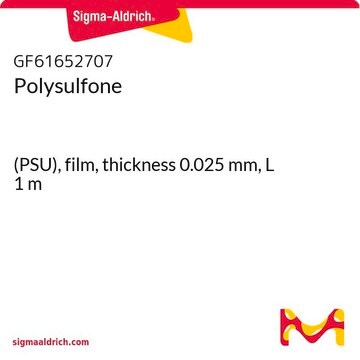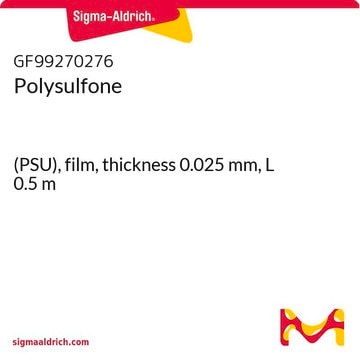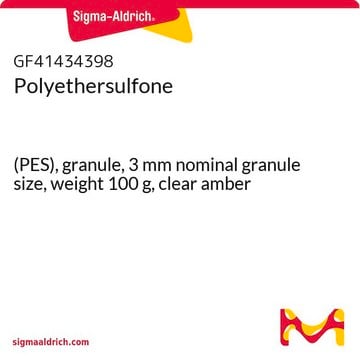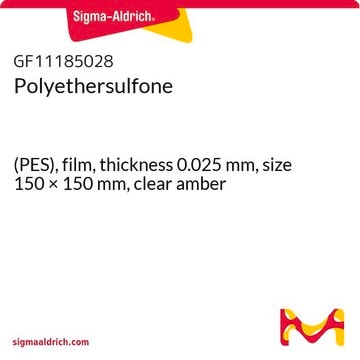182443
Polysulfone
average Mn ~22,000 by MO, beads
Synonym(s):
Poly[oxy-1,4-phenylenesulfonyl-1,4-phenyleneoxy-1,4-phenylene(1-methylethylidene)-1,4-phenylene]
About This Item
Recommended Products
form
beads
pellets
autoignition temp.
1022 °F
melt index
6.5 g/10 min (343 °C/2.16 kg, ASTM D1238)
mol wt
average Mn ~22,000 by MO
hardness
69 (Rockwell M, ASTM D 785)
refractive index
n20/D 1.633
reduced viscosity
0.43-0.46 dL/g, 0.2 % (w/v) in chloroform(25 °C)(lit.)
transition temp
Tg 190 °C
density
1.24 g/mL at 25 °C (lit.)
SMILES string
CC(C)(c1ccc(O)cc1)c2ccc(O)cc2.Oc3ccc(cc3)S(=O)(=O)c4ccc(O)cc4
Looking for similar products? Visit Product Comparison Guide
Application
Features and Benefits
Physical form
Storage Class Code
11 - Combustible Solids
WGK
WGK 3
Flash Point(F)
Not applicable
Flash Point(C)
Not applicable
Personal Protective Equipment
Certificates of Analysis (COA)
Search for Certificates of Analysis (COA) by entering the products Lot/Batch Number. Lot and Batch Numbers can be found on a product’s label following the words ‘Lot’ or ‘Batch’.
Already Own This Product?
Find documentation for the products that you have recently purchased in the Document Library.
Customers Also Viewed
Our team of scientists has experience in all areas of research including Life Science, Material Science, Chemical Synthesis, Chromatography, Analytical and many others.
Contact Technical Service

